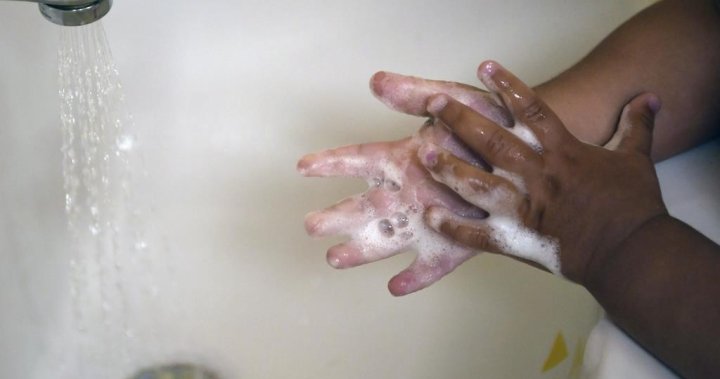During the winter months, it seems few people are safe from illness – flu, COVID-19, norovirus, the common cold.
Although many of the germs that cause this misfortune can circulate throughout the year, scientists believe that the winter surge in flu and colds could be due to the fact that we are spending more time indoors and that cold, dry air can weaken our defenses.
But knowing what these bugs are and how they spread can help. Although it can be difficult to get through the season completely unscathed, there are steps you can take to protect yourself from these respiratory and stomach viruses.
How do I know if I have a cold, flu, COVID-19 or something else?
Some symptoms are difficult to distinguish among illnesses, especially in the case of respiratory viruses. Others are unmistakable.
— Norovirus is a foodborne illness that can spread through contaminated water and surfaces and cause vomiting, diarrhea, nausea and stomach pain for about one to three days.
— The common cold can be caused by several different types of viruses and can cause a runny nose, congestion, cough, sneezing, sore throat, headache, body aches, or low-grade fever for less than a week .
— The flu, caused by constantly evolving flu viruses, causes fever, chills, cough, sore throat, runny nose, body aches, headache and feeling tired. Flu symptoms tend to come on more quickly than cold symptoms and can last anywhere from a few days to two weeks.
— COVID-19 can cause fever, chills, cough, shortness of breath, sore throat, congestion, loss of smell or taste, fatigue, body aches, soreness headache, nausea or vomiting for several days.
— RSV can cause a runny nose, congestion, coughing, sneezing, wheezing, fever, and loss of appetite for a week or two.
One way to protect yourself from all viruses: wash your hands

Receive weekly health news
Receive the latest medical news and health information every Sunday.
Seriously. Thorough and frequent hand washing — with soap! – is crucial to reducing the spread of norovirus, colds, flu and COVID-19.
This is especially true after going to the bathroom and eating or preparing food, according to the U.S. Centers for Disease Control and Prevention.
Don’t rush either. Count to 20, slowly, as you scrub.
If you don’t have access to soap and water, try a hand sanitizer with at least 60% alcohol, although this may not be enough. to eliminate norovirus.
Cleaning Surfaces Can Kill Viruses
If norovirus has found you, you will need to immediately clean surfaces that have come into contact with contaminated food or bodily fluids. The CDC recommends disinfecting items with a bleach solution or any of the products listed on this Environmental Protection Agency website.
Remember to wash any clothes that have come into contact with vomit or feces: use hot water and detergent. Then wash your hands. Again.
In case of colds and flu, it is best to regularly clean surfaces with which you come into frequent contact. Think doorknobs, light switches, countertops, beloved toys, cell phones.
Use household cleaning products containing soap or detergent, then apply a disinfectant. The CDC has more tips on how to clean.
COVID-19 is typically spread through the air from droplets and particles, and the CDC says the risk of contracting the virus from a contaminated surface is low.
Keeping your hands away from your face can keep viruses out
Viruses can be spread by talking, coughing and sneezing, so cover your mouth with a tissue if you feel a tickle in your throat or nose. Then wash your hands. Again.
Additionally, even if you are not sick, consider masking in busy areas with an N95 or medical-grade mask to protect yourself from respiratory viruses.
Don’t touch your face: If you have a germ or virus on your unwashed hands (respiratory or norovirus) and you touch your face, eyes or nose, it can enter your mucous membranes and, voilà!, you are sick !
Consider a vaccine (if there is one)
Updated COVID-19 vaccines are available, as well as annual flu shots for those 6 months and older. For people 60 and older or pregnant people, you may want to get the RSV vaccine.
But there is no vaccine for norovirus or the common cold.
Another way to maintain your defenses against viruses: rest
Your immune system may not work as well if you’re sleep-deprived, stressed, or dehydrated. So don’t crash if you can help it. Rest. Sleep. Drink water.
If you are sick, stay home
If you get sick, rapid tests can help determine if you have COVID-19 or the flu. It’s important to know if you need any of the medications that can help prevent serious illness: Paxlovid for COVID-19 and Tamiflu for the flu.
Above all, if you have symptoms, stay home to avoid getting others sick.
To treat a cold, flu or COVID-19, get rest and drink fluids. You can take painkillers to lower a fever or soothe an aching body. Humidifiers can also relieve symptoms.
There is no medication for norovirus. Instead, you will need to rehydrate as much as possible with water and other fluids. Get help if you are dehydrated and notice that you have a dry mouth and throat, aren’t urinating as much, or feel dizzy when standing.





